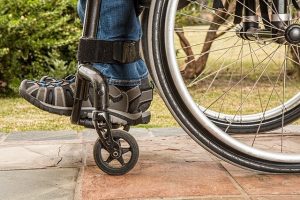WHY A POSITIVE DISPATCHER & DRIVER RELATIONSHIP IS KEY
Dispatcher & Driver Relationship
Dispatching truck drivers is a challenging yet rewarding career path. The relationship between the two can be maintained in a healthy way through constant coaching and communication.
Dispatchers must be trained to manage any situation a driver might face over the road. They must be competent enough to walk the driver through sticky situations according to company policy. Not add to the stress of an already intense situation.

A dispatcher is the trucker’s first line of communication when encountering difficult situations. They are the first phone call when a trucker realizes their load might be late, or their trailer is overweight.
But these are minor inconveniences that happen daily, with relatively simple solutions. When a driver becomes injured, however, the dispatcher must be equipped to oversee the crisis.
Proactive vs. Reactive
In the simplest terms, being reactive means responding to situations that have already happened. Being proactive means having a plan in place before a situation occurs.
When a driver realizes their load might be late, there are certain stresses that exist when reporting to the dispatcher. They might be afraid they will get written up or lose their bonus.
While a written warning from a dispatcher is anxiety-inducing, it is nothing compared to the stress that can be caused by injury. Truck drivers are at high risk for some nasty injuries. From broken bones to lost limbs, even death, each is a potential risk of the job.
When a driver calls in to report an accident, the dispatcher must be trained to keep calm. They must also readily recall company policy in order to properly report the incident.

To achieve this, training should occur for dispatchers. Not only on the proper procedures, but also how to effectively communicate with a truck driver after a traumatic incident has occurred.
Driver Risks
Work-related injuries can happen anytime, anywhere. For truck drivers, the consequences of a work-related injury could be life or death.

As with any physically demanding job, truckers encounter many risks:
- – Entering and Exiting the Tractor Trailer
- – Slinging Chains or Tarps
- – Loading and Unloading freight
- – Adjusting Heavy Equipment (sliding tandems)
- – Back Injury from Extended Driving
- – Heat-Related Injuries
- – Hazardous Material Exposure
- – Accidents and Incidents
Each of these poses a threat to the driver’s health, up to serious injury or death. They could also be put on medical hold if deemed not qualified to operate a commercial vehicle, which can lead to financial struggles for the company and/or the driver.
In addition to truck driver training, dispatchers should be trained on the proper procedures before an event occurs. Knowledge that is frequently and consistently trained will be readily available during a time of crisis.
The Dispatcher & Driver Relationship Program
A healthy relationship is a fundamental motivator for hard work.
Encouraging a positive company culture is essential to achieving top performance. Your dispatchers and drivers are the heart and soul of your company. The health of their relationship is a key indicator of employee morale. A healthy relationship is a fundamental motivator for hard work.

The Dan Baker Cultural Relationship Program offered by Infinit-I Workforce Solutions teaches dispatchers the importance of communication and cooperation with their drivers.
In addition to Dispatcher Driver Relationship training, The Dan Baker Cultural Relationship Program focuses on:
- – Employee Development
- – Improve Communications
- – Encourage Cooperation
- – Foster Professionalism
The entire Dan Baker Cultural Relationship Program is available on the Infinit-I Workforce Solutions platform.












